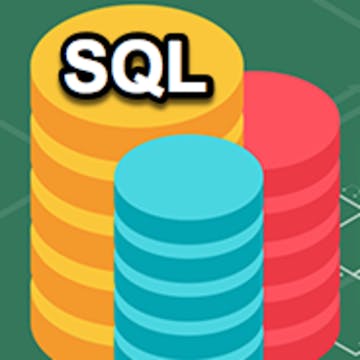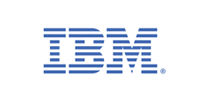
Gran parte de los datos del mundo residen en bases de datos. SQL (o lenguaje de consulta estructurado) es un lenguaje poderoso que se utiliza para comunicarse y extraer datos de bases de datos. Un conocimiento práctico de bases de datos y SQL es imprescindible si desea convertirse en un científico de datos.
El propósito de este curso es presentar los conceptos de bases de datos relacionales y ayudarlo a aprender y aplicar los conocimientos básicos del lenguaje SQL. También está destinado a ayudarle a empezar a realizar el acceso SQL en un entorno de ciencia de datos.
El énfasis en este curso está en el aprendizaje práctico y...
Read more
Good to know
Save this course
Reviews summary
Databases and sql for data science
Activities
Read 'The Pragmatic Programmer' by Hunt and Thomas
Show steps
This book is a guided tour of the best practices for learning SQL and is highly relevant to becoming a data scientist
View
The Pragmatic Programmer: Your Journey To...
on Amazon
Show steps
-
Purchase the book (paper/digital)
-
Allocate 45 min every evening for reading
Practice SQL queries on W3Schools SQL practice platform
Show steps
The W3Schools SQL platform offers many exercises to practice basic and advanced SQL queries
Show steps
-
Go to the W3Schools SQL practice platform
-
Select an exercise and complete it
Follow the tutorials on the SQLZoo website
Show steps
SQLZoo is a fun and interactive way to learn SQL queries.
Show steps
-
Choose a tutorial and follow along
-
Visit the SQLZoo website
Five other activities
Expand to see all activities and additional details
Show all eight activities
Build a basic data dictionary for a real-world dataset
Show steps
Building a data dictionary is a foundational skill in database design and is a critical component for data scientists
Show steps
-
Choose a dataset and list all the columns
-
Define the data type of each column
-
Identify missing and incomplete data for each column
Attend a workshop on data science skills
Show steps
Taking a data science workshop can help you strengthen your skills.
Show steps
-
Find a workshop that fits your skill level and interests
-
Attend the workshop and participate in the activities
Write a blog post explaining the difference between SQL and NoSQL
Show steps
Writing this blog post will help solidify your understanding of the advantages and disadvantages of each.
Show steps
-
Decide which aspects to compare
-
Write a draft
-
Edit and publish the post
Volunteer at a data science organization
Show steps
Volunteering is a great way to gain real-world experience in data science.
Show steps
-
Find a data science organization that you're interested in volunteering for
-
Contact the organization and express your interest in volunteering
Attend a meetup or conference for data scientists
Show steps
Networking with other data scientists can be a rewarding experience
Show steps
-
Find a meetup or conference in your area
-
Attend the event and speak to as many people as possible
Read 'The Pragmatic Programmer' by Hunt and Thomas
Show steps
This book is a guided tour of the best practices for learning SQL and is highly relevant to becoming a data scientist
View
The Pragmatic Programmer: Your Journey To...
on Amazon
Show steps
- Purchase the book (paper/digital)
- Allocate 45 min every evening for reading
Practice SQL queries on W3Schools SQL practice platform
Show steps
The W3Schools SQL platform offers many exercises to practice basic and advanced SQL queries
Show steps
- Go to the W3Schools SQL practice platform
- Select an exercise and complete it
Follow the tutorials on the SQLZoo website
Show steps
SQLZoo is a fun and interactive way to learn SQL queries.
Show steps
- Choose a tutorial and follow along
- Visit the SQLZoo website
Build a basic data dictionary for a real-world dataset
Show steps
Building a data dictionary is a foundational skill in database design and is a critical component for data scientists
Show steps
- Choose a dataset and list all the columns
- Define the data type of each column
- Identify missing and incomplete data for each column
Attend a workshop on data science skills
Show steps
Taking a data science workshop can help you strengthen your skills.
Show steps
- Find a workshop that fits your skill level and interests
- Attend the workshop and participate in the activities
Write a blog post explaining the difference between SQL and NoSQL
Show steps
Writing this blog post will help solidify your understanding of the advantages and disadvantages of each.
Show steps
- Decide which aspects to compare
- Write a draft
- Edit and publish the post
Volunteer at a data science organization
Show steps
Volunteering is a great way to gain real-world experience in data science.
Show steps
- Find a data science organization that you're interested in volunteering for
- Contact the organization and express your interest in volunteering
Attend a meetup or conference for data scientists
Show steps
Networking with other data scientists can be a rewarding experience
Show steps
- Find a meetup or conference in your area
- Attend the event and speak to as many people as possible
Career center
Data Scientist
Database Administrator
Data Analyst
Business Intelligence Analyst
Data Engineer
Statistician
Software Engineer
Data Science Manager
Machine Learning Engineer
Database Architect
Business Analyst
Information Security Analyst
Product Manager
Data Warehouse Analyst
Technical Writer
Reading list
Share
Similar courses
OpenCourser helps millions of learners each year. People visit us to learn workspace skills, ace their exams, and nurture their curiosity.
Our extensive catalog contains over 50,000 courses and twice as many books. Browse by search, by topic, or even by career interests. We'll match you to the right resources quickly.
Find this site helpful? Tell a friend about us.
We're supported by our community of learners. When you purchase or subscribe to courses and programs or purchase books, we may earn a commission from our partners.
Your purchases help us maintain our catalog and keep our servers humming without ads.
Thank you for supporting OpenCourser.



